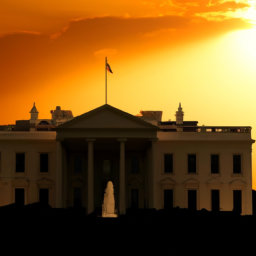The 22nd Amendment of the Constitution establishes that an elected president can only serve two terms in office for a total of eight years. This amendment was ratified in 1951, after President Franklin D. Roosevelt was elected to four terms, serving from 1933 until his death in 1945. Roosevelt's extended presidency raised concerns about the concentration of power and the potential for abuse of executive authority.
The 22nd Amendment was a response to these concerns, establishing a limit on presidential terms to prevent any one person from holding the office for an extended period of time. Section 1 of the amendment states, "No person shall be elected to the office of the President more than twice, and no person who has held the office of President, or acted as President, for more than two years of a term to which some other person was elected President shall be elected to the office of the President more than once."
While the 22nd Amendment has been in place for over 70 years, there have been occasional discussions about the possibility of amending or repealing the amendment to allow presidents to serve more than two terms. However, these discussions have not gained significant traction, and the amendment remains in place.
Some argue that the 22nd Amendment infringes upon the democratic process, limiting the choices of voters and preventing qualified candidates from running for office. Others contend that the amendment is a necessary safeguard against executive overreach and the abuse of power.
Cornell Law professor Michael C. Dorf explains why, if Donald Trump wins the 2024 Presidential Election, there is a genuine possibility that he could serve a third term. While the 22nd Amendment prohibits a president from being elected to a third term, it does not prevent a former president from serving again if they have not held the office for more than two years of another president's term. So, if Trump were to win in 2024 and serve a full four-year term, he could potentially run again in 2028, as long as he did not serve for more than two years of another president's term in the interim.
However, this scenario is purely hypothetical, and it is unclear whether Trump would choose to run again or be successful if he did. Additionally, any attempt to repeal or amend the 22nd Amendment would require significant support in Congress and among the American public, which is unlikely.
In contrast to the American system, some countries allow their leaders to serve for extended periods of time. For example, Chinese leader Xi Jinping was recently awarded a third five-year term as the nation's president, putting him on track to stay in power until at least 2027. The French constitution also prevents the president from running for a third consecutive mandate.
While the 22nd Amendment remains in place, it is unlikely that an American president will serve more than two terms in office. However, the amendment's history and implications continue to shape the discourse around the presidency and the balance of power in American politics.
In conclusion, the 22nd Amendment of the Constitution limits the number of presidential terms to two and prevents any one person from holding the office for an extended period of time. While there have been occasional discussions about amending or repealing the amendment, it remains in place and is unlikely to change. The potential for a president to serve more than two terms is purely hypothetical and depends on a variety of factors. Overall, the 22nd Amendment continues to shape the discourse around the presidency and the balance of power in American politics.
